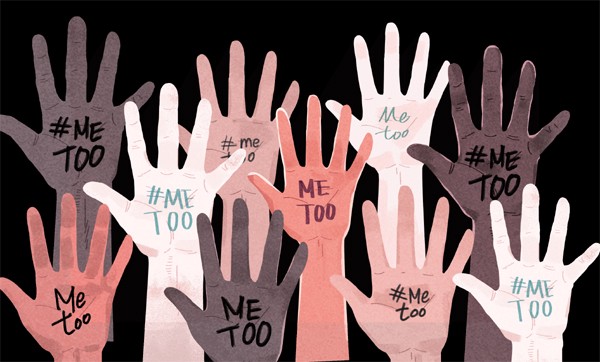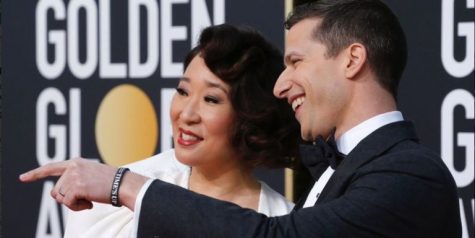Time’s Not Up for #MeToo

The #MeToo movement began in 2006 and continues to revolutionize the world today.
January 18, 2019
Between blackouts on the red carpet and dozens of influential celebrities placed on trial, the #MeToo movement has made remarkable progress within the last few years. This widespread campaign is an anti-sexual harassment movement which has irrevocably changed the world of politics and entertainment beginning as early as 2006.
The slogan “Me Too” was coined by Tarana Burke, a survivor of sexual assault herself, and urges women across social media platforms to share their own stories of sexual assault and support others. According to activist Alyssa Milano, “If all the women who have been sexually harassed or assaulted wrote ‘me, too’ as a status, we might give people a sense of the magnitude of the problem.”
Over the course of only two years, the #MeToo movement has successfully exposed a number of sexual harassers who hid their misconduct through fame, including film producer Harvey Weinstein, U.S. Olympics gymnastics doctor Larry Nassar, actor Kevin Spacey, comedian Louis C.K., director Woody Allen, comedian Bill Cosby, and numerous others. The most recent development in the movement has been the testimonies of several victims of sexual assault from R&B artist R. Kelly; these testimonies were compiled and showcased in the Lifetime documentary Surviving R. Kelly which has received popularity and praise for capturing the horror of a sexual abuser and allowing others to become aware of movement.
During the last few months of 2018, the #MeToo movement was once more spotlighted by the media during the infamous trial of Brett Kavanaugh, whose nomination for the U.S. Supreme Court by President Trump was questioned after several sexual assault allegations. Among these women testifying against Kavanaugh was Dr. Christine Ford, who gave a detailed testimony and was praised by many for her heroism.
The #MeToo movement is closely correlated with the Time’s Up movement, which differs in that it is more Hollywood-based and is a monetary foundation dedicated to not only raising awareness about sexual harassment, but also passing official legislation to protect women. According to Time, the Time’s Up movement is focused on fairness, safety, and equity in the workplace.

2019 Golden Globes Awards hosts Sandra Oh and Andy Samberg were among the numerous Hollywood stars to show support for the #MeToo and Time’s Up movements on the red carpet by wearing bracelets.
The Time’s Up movement is supported quite publicly by the influential figures of Hollywood. During the 75th Golden Globes Awards in 2018, nearly all of the attending stars wore all black in support of the movement. This solidarity continued into the 76th Golden Globes Awards of this year, during which numerous attendees donned Time’s Up bracelets.
Although their sexual harassment continues to be an epidemic and many sexual harassers continue to go unpunished, the #MeToo movement and corresponding Time’s Up movement has inarguably created revolutionary change. Shifa Mirza (11) agrees with this sentiment, stating “I think it’s incredible that women today can feel comfortable about bringing these serious issues to light and are less afraid to expose the criminals who made them feel this way.”
With every #MeToo Tweet, Instagram post, and Facebook comment, the world achieves more equality and safety. While the movement still has much to accomplish, the past two years have been a whirlwind of impressive change.





































